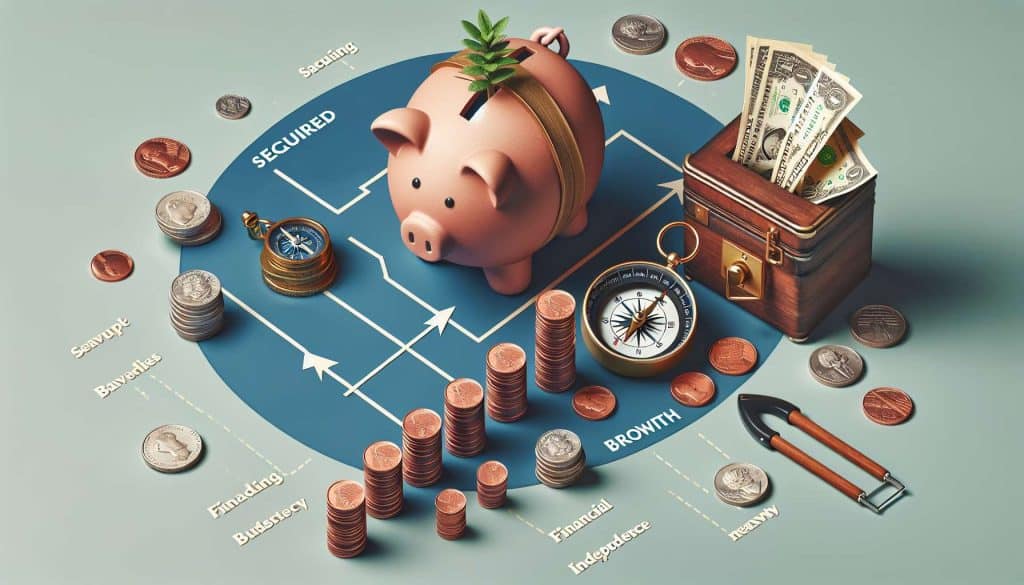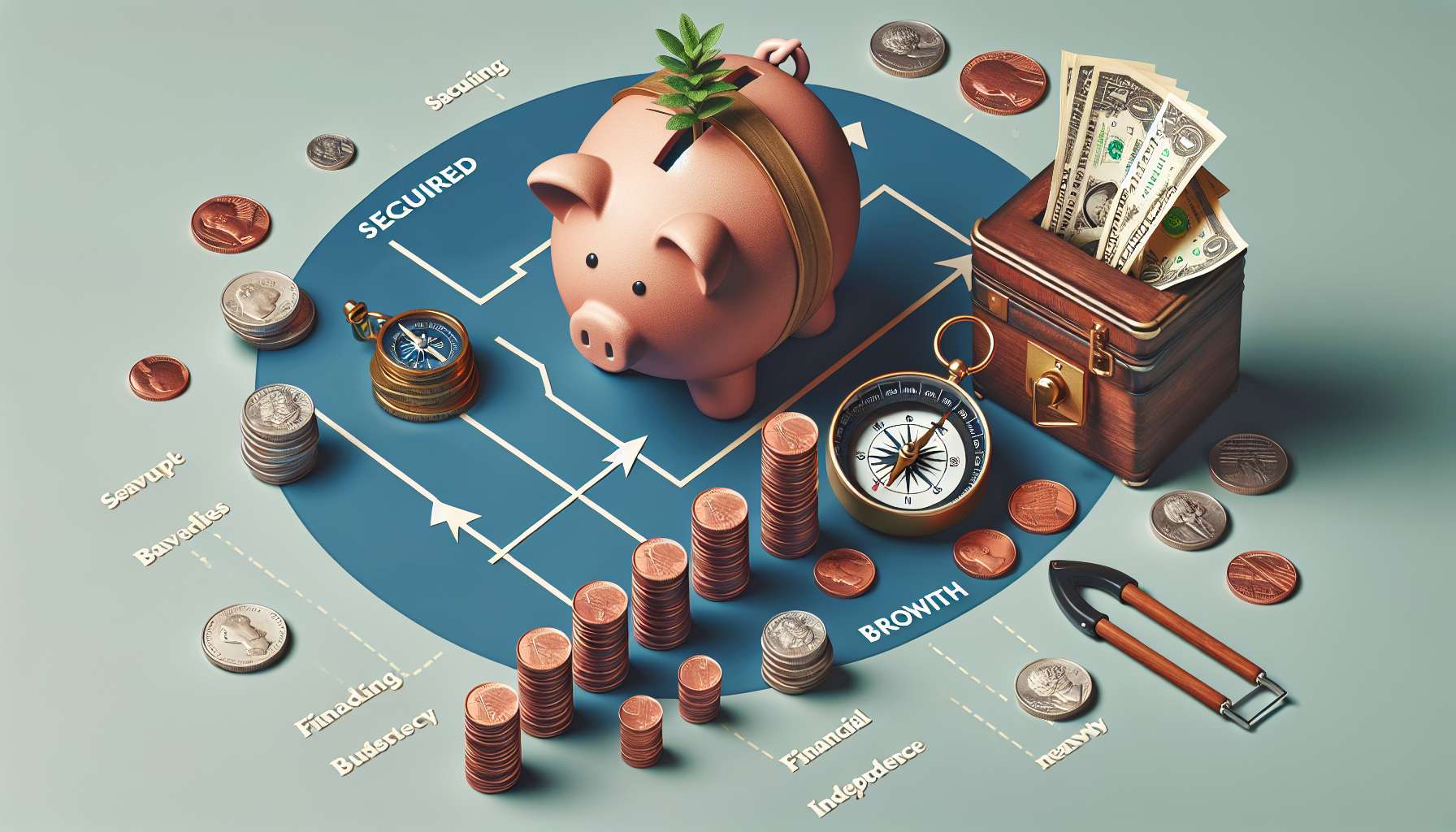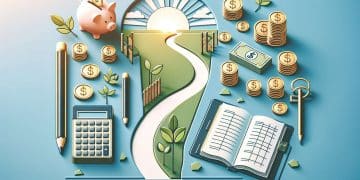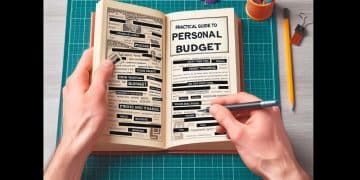Achieve Financial Freedom: The Ultimate Guide to Mastering Personal Budgeting


**Mastering Personal Budgeting: Your Roadmap to Financial Freedom**
Anúncios
Managing finances in our fast-paced world has never been more significant. Whether your goal is to pay off debt, save for that dream vacation, or build up a robust retirement fund, personal budgeting is the fundamental building block of your financial strategy. Its importance is undeniable. However, the idea of budgeting intimidates many. With the right guidance, understanding personal budgeting can transform into an empowering tool to achieve financial independence. This article is designed to walk you through the essentials of personal budgeting, creating a clear path to financial freedom.
In modern times, personal budgeting is a strategy everyone should master. By organizing your finances, you can set informed decisions in motion, living within your means and avoiding unwanted debt. Budgeting provides insights by tracking income versus expenditures, highlighting your spending patterns. Armed with this knowledge, you’re positioned to save more efficiently, invest wisely, and prepare for future financial endeavors. Personal budgeting isn’t just about saving money; it’s about gaining control over your life.
Before embarking on your budgeting journey, assessing your current financial situation is crucial. This begins by identifying all income sources, from salaries to freelance gigs, or even passive income. Collect essential financial documents such as bank statements and bills to categorize expenses as fixed or variable. Only once you have a clear picture of your money flow can you make effective changes. Thus, understanding your financial situation becomes the first critical step in mastering personal budgeting.
Overview of Personal Budgeting
Having a solid financial plan starts with gathering pertinent financial data. Collect documents like utility bills, credit card statements, and bank summaries to determine both fixed and variable expenses. From this assessment, you can develop short-term and long-term financial goals. Short-term might include paying off a credit card or saving for a getaway, achievable within a year or so. Meanwhile, long-term goals require a strategic vision, maybe saving for retirement or purchasing a house, necessitating a more substantial financial commitment.
Developing a budget involves allocating your income wisely. Consider using the 50/30/20 rule, where 50% of income goes to necessities, 30% to discretionary expenses, and 20% to savings and investments. Adjust this guideline based on personal circumstances. Moreover, tracking and monitoring expenses daily, possibly with apps or spreadsheets, will ensure accuracy. Evaluate your budget monthly to spot trends and realign with your financial aspirations.
Avoid pitfalls in budgeting by being vigilant about small expenses. They can accumulate, derailing your financial plans. Additionally, be flexible and ready to adjust your budget as life circumstances change. Often, financial stability requires re-evaluating and modifying your approach. Make your budget work for you by prioritizing an emergency fund to handle unforeseen events. Strategic debt reduction through methods like the snowball can aid in overcoming high-interest debts.
Characteristics of Effective Budgeting
- Informed decision-making process
- Tracking and monitoring spending habits
- Flexibility to adjust as financial goals evolve
- Prioritizing both short-term and long-term objectives
- Consistency in savings and debt management
Benefits of Mastering Personal Budgeting
Personal budgeting offers an array of benefits, enhancing financial security and promoting independence. By mastering this skill, individuals experience reduced financial stress, as money is organized and accounted for. Setting realistic goals and viewing your finances holistically boosts confidence in daily spending choices. Mastering budgeting facilitates reaching milestones, whether short or long-term goals, building a strong financial foundation.
One of the most notable advantages is the ability to meet life’s unexpected challenges with a sense of preparedness. With an emergency fund in place, unexpected events like medical emergencies or car repairs don’t disrupt your finances entirely. Another benefit is debt reduction. By adhering to a budget, individuals can strategically pay off debts, reducing interest payments and enhancing credit scores.
Personal budgeting intrinsically encourages a saving mindset. Through automation, set up transfers from your checking to savings account, ensuring consistency. Meanwhile, revisiting lifestyle choices opens avenues for cost-effective living—cooking at home or canceling unused subscriptions—boosting your savings potential. Savings grow minimally at first but accumulate significantly over time, celebrating the long-term debt-free and financial freedom.
Ultimately, mastering personal budgeting empowers individuals to align their financial choices with their long-term life goals. By organizing finances intentionally, life’s complex financial landscape becomes navigable. Long gone are the days of feeling at the mercy of imminent bills or debts, as budgeting creates clear pathways for managing financial growth. Money becomes a tool for building the life envisioned, no longer a source of constant stress or uncertainty.
Financial freedom doesn’t happen overnight. It’s a journey of disciplined practices and perpetual evaluation, recognizing each expenditure’s impact on your life’s bigger picture. Transformative changes occur through thoughtful commitments to a well-structured budget. By adhering to these principles and adapting as necessary, personal budgeting becomes an empowering component of your financial and overall life strategy.
- Reduced financial stress
- Enhanced financial security
- Proactive debt reduction strategies
- Consistent savings through automation
- Empowered financial decision-making





